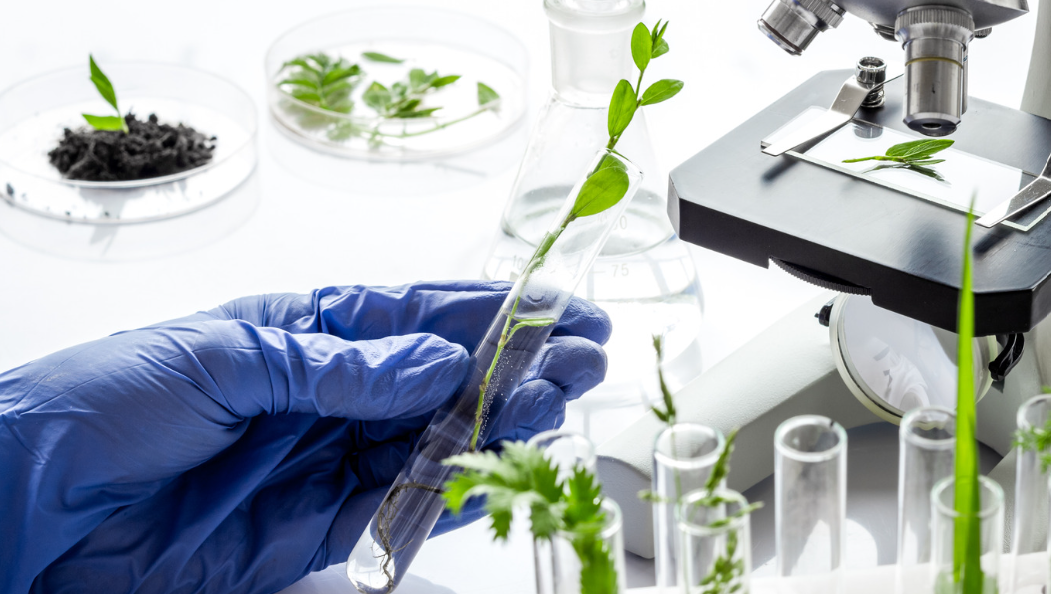USD Professor Earns NSF EAGER Award

University of South Dakota Department of Biology Professor, Bernard Wone, received a National Science Foundation award of $299,988: EAGER: SYNPLASOMES – SYNthetic PLAnt epiSOMES for plant genome editing and engineering.
With this award, what is being developed has potential for transformative impact in the plant and agricultural sciences and industries.
“We are thrilled that our Synthetic Plant Episome (Synplasome) project has been awarded an NSF Early Concept Exploratory Grant! This funding will help us advance our research and development efforts in plant genome editing and engineering.”
Bernie Wone
What this entails in terms of the abstract:
Plant genome editing and engineering are crucial for understanding the genetics behind complex traits, such as drought tolerance, improving crop yield and plant structure. These technologies are essential for making crops more sustainable and productive, especially as the global population grows and environmental conditions worsen. There is also an urgent need to accelerate the production of plant-based nutrition and health products. However, current plant genome editing faces challenges due to inefficient gene delivery and expression systems. The process involves complex tissue culture and plant transformation methods that are time consuming and work on a limited number of plant varieties, thus limiting the scope and scalability. To address these issues, the project aims to develop unique synthetic circular DNAs designed to be self-replicating but not integrated into the genome of the plant cell. Similar systems have been tested successfully in animal systems to study genetic components in a cell that modulate function of genes and biological processes associated with diseases and health conditions. This advancement and application in plants could provide more efficient tools in the hands of plant researchers working on studying gene function, climate resilience crop plants, and help identify and bioengineer native candidate genes for improving yield and abiotic stress tolerance in crops.
Nano-enabled genome editing offers a promising solution for addressing the limitations inherent in conventional plant genetic transformation, essential for genome editing and engineering. Despite its potential, the efficiency of nano-enabled transformation remains lower than that of Agrobacterium-mediated transformation. Both methods have additional limitations including diminishing levels of transgene expression for a desired duration in a plant, and limited varieties of plants that can be transformed. The proposed research focuses on the development of SYNthetic PLAnt epiSOMES (SYNPLASOMES) that are engineered to self-replicate, assist in the selection of transformants and do not integrate into the native genome. The study will evaluate the effectiveness of various plant-specific combinations of origins of replication and matrix attachment regions in enhancing both the level and the duration of transgene expression through nano-enabled genetic transformation. These SYNPLASOMES, synthesized, assembled, and delivered using D-R9 cell-penetrating peptides, will be tested in several model plants and crop species, including tobacco, canola, soybean, and poplar. Anticipated result from this research is the development of an efficient, persistent, self-replicating, and integration-free plant genetic transformation system. Such a system has the potential for breakthrough application across a diverse array of plant species, significantly benefiting biotechnological endeavors in plant and agricultural sciences.
This award reflects NSF’s statutory mission and has been deemed worthy of support through evaluation using the Foundation’s intellectual merit and broader impacts review criteria.
 National Science Foundation RII Track-1 Project:Expanding Research, Education and Innovation in South Dakota
National Science Foundation RII Track-1 Project:Expanding Research, Education and Innovation in South Dakota